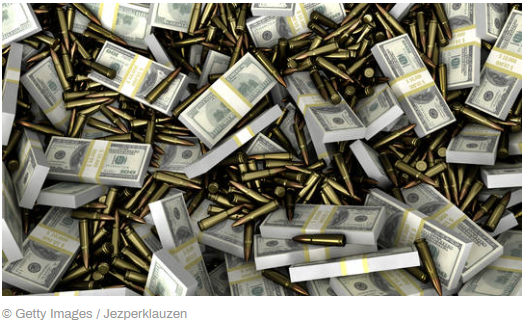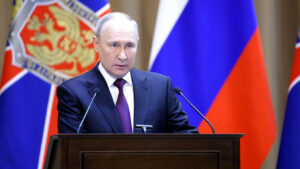
STRATEGIC ASSESSMENT. Israel has “moved on to a new phase in the war,” Defense Minister Yoav Gallant announced, adding that ground operations in Gaza will continue “until new orders are given.”
Israeli warplanes pounded Gaza with airstrikes throughout Friday night and into Saturday morning, as ground troops and armor were launched in a significant incursion into the Palestinian enclave.
The Israel Defense Forces (IDF) claimed that it destroyed more than 150 underground tunnels and bunkers used by Hamas, while columns of tanks and troops engaged the militant group’s fighters.

“We have moved on to a new phase in the war,” Gallant said on Saturday in remarks carried by Israeli media. “The ground in Gaza shook. We attacked above and below the ground, we attacked terrorist operatives at all levels, in all places,” he declared, adding that similar operations in the enclave would continue “until new orders are given.”
IDF spokesman Rear Admiral Daniel Hagari told reporters that the troops sent into Gaza the previous night “are still in the field and continuing the war.”
The IDF said that it killed Asem Abu Rakaba, a top Hamas official in charge of air defense, and Rateb Abu Sahiban, a Hamas naval commander, in two separate airstrikes.
Hamas said in a statement that its fighters ambushed Israeli forces on Friday, inflicting heavy losses on the attackers. In a separate statement on Saturday, the group said that it was engaging Israeli troops near the northeastern Gaza town of Beit Hanoun and the refugee camp of al-Bureji, located in the center of the enclave.
The IDF’s expansion of its operation comes almost three weeks after Hamas militants launched a surprise attack on the Jewish state, hammering Israeli towns and cities with rockets and raiding settlements near the Gaza border. Around 1,400 Israelis have been killed since the war began, while Israeli airstrikes have killed more than 7,000 Palestinians, according to the latest figures from the IDF and the Gaza Health Ministry, respectively.
Both Gallant and Prime Minister Benjamin Netanyahu have warned for the past two weeks that a major ground operation in Gaza would be imminent, although the decision to send in troops was reportedly postponed several times, with media reports identifying the US and Netanyahu himself as responsible for the delay.
It is unclear whether Friday’s incursion will be followed by a larger invasion. According to a New York Times report. Some members of the Israeli government favor “a less ambitious plan involving several more limited incursions that target one small part of the enclave at a time.”
There are concerns that a full-scale invasion may result in heavy Israeli casualties and trigger an escalation with other regional players, such as Lebanon’s Hezbollah movement.
A ceasefire and humanitarian programs are needed in Gaza to save the population, which has been blockaded without water, electricity, and food, Russian Foreign Minister Sergey Lavrov said in an interview with the Belarusian news agency BELTA.
According to the Russian official, “if the Gaza Strip is destroyed and 2 million residents are expelled, it will create a catastrophe for many more decades, if not centuries.”
During the interview, Lavrov cited UN Secretary-General Antonio Guterres, who said that “the attacks by Hamas did not happen in a vacuum” and recalled the need for a two-state solution.
The minister noted that he has repeatedly told his Israeli counterparts that the unstable situation in the region will not calm down “without the creation of a Palestinian state through negotiations,” and that there will always be a threat to West Jerusalem from the unstable Palestinian territories.
Given the current situation in Gaza, Lavrov said, direct talks between Palestine and Israel about a two-state solution are hardly possible. However, Moscow is “sending a signal” to West Jerusalem that a peaceful way out must be found instead of “completing the announced scorched-earth strategy in Gaza,” he added.
The foreign minister also noted that the escalation of the Gaza conflict “has sent a signal to the West” that it should think “not only about Ukraine, where they want to inflict a strategic defeat on Russia on the battlefield,” but also about how to ensure security interests in general.

Russian President Vladimir Putin recalled Moscow’s position on the Gaza conflict – that two independent sovereign states should be created based on the decisions of the UN Security Council – but noted that the main point now is to stop the bloodshed and violence.
On the same day, Israeli PM Benjamin Netanyahu addressed the nation and said that “we are raining down hellfire on Hamas” promising a “ground incursion” into Gaza.

Israel Defense Forces (IDF) spokesperson Daniel Hagari said that in addition to the attacks of the past few days, ground forces were “expanding” their activities. A few hours later, the Palestinian Foreign Ministry stated on X (formerly Twitter) that it was calling on the entire world “to intervene immediately to stop this war.”
Hamas attacked Israel on October 7, killing up to 1,400 people and taking over 200 hostages. In response, West Jerusalem launched massive airstrikes on Gaza while cutting off the enclave’s water, electricity, fuel and medical supplies.

Palestinian officials say the death toll has exceeded 7,000, including more than 3,000 children. Gaza’s hospital system has reportedly completely collapsed, while humanitarian organizations and international journalists say they have lost contact with their colleagues amid the intensified Israeli bombardment.
The Israeli military has moved to expand its ground operations in Gaza after talks to free hostages taken by the Palestinian armed group Hamas hit a dead end, Axios reported on Saturday, citing sources. Hamas is currently holding more than 200 people, including both soldiers and civilians.
According to two Israeli officials interviewed by the outlet, the decision to take hostilities to a new level was made by the war cabinet on Thursday night. With negotiations reportedly failing to secure the release of the hostages, the Israel Defense Forces said that it had moved ahead with both air and ground operations in Gaza.

The Times of Israel citing a senior official, that the government believes Hamas “has been dragging out hostage negotiations” to postpone the offensive in Gaza. The paper’s source also indicated that there was no breakthrough in sight. Contrary to that assessment, CNN reported the same day, citing a source familiar with the negotiation process, that there had been “significant progress.”
“There are issues still remaining, but talks are ongoing, and we remain hopeful,” a source for the American network said.
This came after Iranian Foreign Minister Hossein Amir-Abdollahian revealed that Hamas, which has close ties with Tehran, “is ready to release civilian prisoners.” Several media reports also claimed that the Biden administration has been urging Israel to delay its ground attack to gain more time to secure the release of hostages.

Israeli officials say Hamas has taken a total of 224 people captive since October 7, when it launched its surprise raid, with some of the prisoners being foreign nationals. The militant group has so far released four of those held, including a mother and daughter from Chicago and two elderly Israeli women.
At the same time, Hamas has claimed that Israeli airstrikes have killed about 50 hostages. According to official figures, in total more than 7,300 Palestinians and 1,400 Israelis have been killed in the fighting so far.
Oil and metals markets reacted strongly on Friday to news from the Middle East, where Israel Defense Forces (IDF) announced they were “expanding ground operations” in Gaza.

Oil prices climbed nearly 3% to a one-week high amid fears that the conflict between Israel and Palestine could spread to the broader Middle East, a crucial supplier of energy and a key oil shipping passageway. Global benchmark Brent futures rose $2.51, or 2.85%, to settle at $90.44 a barrel. The US benchmark West Texas Intermediate (WTI) crude spiked $1.95, or 2.3%, to settle at $85.16 a barrel.
According to an earlier projection by Bloomberg Economics, oil prices could reach $150 per barrel if Iran joins the conflict.
Meanwhile, gold topped $2,000 an ounce for the first time since August as investors started stocking up on the haven asset, a traditional move in times of economic or geopolitical instability. Gold futures for December trading session at $1998.50 an ounce, but surged in post-settlement trade to $2,017.85, up $20.45, or 1.02%, on the day.

“We’re seeing this spike as Israel moves into Gaza, and there’s now a growing risk this might become a broader conflict,” Bart Melek, managing director and head of commodity strategy at TD Bank, told Bloomberg.
Gold has rallied approximately 9% since the Israel-Palestine conflict escalated after a surprise attack by Palestinian armed group Hamas on Israel on October 7. Experts and traders warn that the uncertainty in the region will continue driving bullion prices higher.





